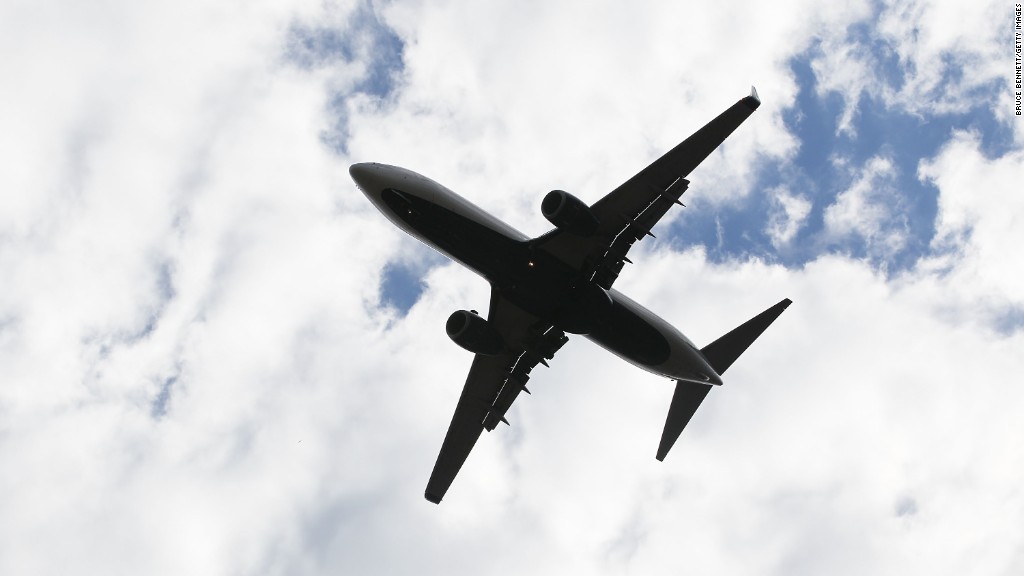
American and British authorities say they are trying to keep passengers safe by banning laptops and tablets from airplane cabins on some flights from the Middle East.
But security experts have questions about why the ban is being instituted now, and whether it will really make flying safer -- or just less convenient.
The U.S. ban, which takes effect Friday, essentially prevents passengers from carrying electronic devices bigger than a smartphone on board planes. They can still be checked in baggage.
The airports included in the ban are not exactly third-world airstrips. They already have sophisticated screening procedures that make it extremely difficult to get an explosive onto any part of a plane.
"Abu Dhabi and Dubai have been selected for this, and they're among the most modern airports in the world," said Paul Cruickshank, CNN terrorism expert and editor of the CTC Sentinel, the publication of the Combating Terrorism Center, a West Point think tank.
"They have all the state-of-the-art machines U.S. airports have," he said.
Besides Abu Dhabi and Dubai, U.S.-bound flights from eight other Middle East airports are included in the ban: Cairo; Istanbul; Doha, Qatar; Amman, Jordan; Kuwait City; Casablanca, Morocco; and Jeddah and Riyadh, Saudi Arabia. No U.S. airline serves those airports.
The British ban does not include Abu Dhabi, Dubai, Doha, Kuwait City or Casablanca, but it does include two countries not on the U.S. list: Tunisia and Lebanon.
Related: Airline electronics ban - What you need to know
Checked bags vs. carry-ons
Experts say it's not clear that it's safer to limit electronics to checked bags. If anything, they say, screening for carry-on bags is more rigorous than for checked bags at many airports.
It was apparently a bomb in the cargo hold that brought down a Russian airliner flying from Sharm el-Sheikh International Airport in Egypt in October 2015, killing all 224 people on board.
However, terrorists have also done damage with bombs on board.
A bomb aboard a Somali airliner leaving Mogadishu in February 2016 was smuggled aboard in a laptop. The terrorist who carried it blew a hole in the side of the jet. The terrorist was blown out of the plane. Because the bomb went off before the jet reached cruising altitude, the pilots were able to land without any other passengers or crew being killed.
"This is not new that terrorist groups have been developing capabilities to conceal explosives in electronics," Cruickshank said. "So why all of a sudden are we getting these new restrictions?"
The Department of Homeland Security did not cite a specific threat in announcing the ban.
"We have reason to be concerned about attempts by terrorist groups to circumvent aviation security and terrorist groups continue to target aviation interests," the agency said.
Related: Airline electronics ban already causing frustration and confusion
Risk tolerance
Cruickshank said the Trump administration's own threat assessment may simply have less tolerance of risk than the Obama administration's.
"It's just a judgment call how far you're willing to go," he said.
All the airports in both countries' bans are in majority Muslim countries, though they are entirely separate from the countries included in President Trump's orders restricting travel to the United States. That similarity raised questions among some critics.
"The administration hasn't provided a security rationale that makes sense for this measure targeting travelers from Muslim-majority countries," said Hina Shamsi, director of the ACLU National Security Project. "Given the administration's already poor track record, this measure sends another signal of discriminatory targeting."
But others said they believe the administration is trying to balance increased security and minimal disruption. They said authorities frequently take steps to tighten security without getting attention.
"There's no perfect system. You just try to mitigate risk the best you can," said John Pistole, a head of the Transportation Security Administration during the Obama administration. "You can only mitigate the risk, not eliminate it. To eliminate it, you have to shut the system down, and then the terrorists win. Instituting a systemwide ban, that would be hugely disruptive."
--CNNMoney's Samuel Burke and Jill Disis and CNN's Rene Marsh contributed to this report.

